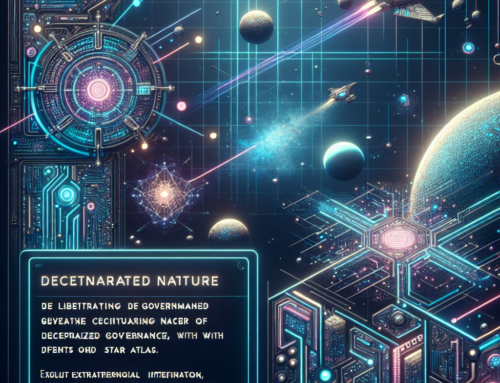Exploring National Identity in Star Atlas | Titan Analytics

Exploring National Identity in Star Atlas
National identity is an intriguing concept that reflects a community’s shared values, beliefs, and cultural heritage. In the realm of gaming and virtual worlds, this idea takes on a unique form, particularly within the vast universe of Star Atlas. At Titan Analytics, as a dedicated Solana validator and an analytics platform for Star Atlas, we’re excited to dive into how national identity can be explored in this expansive metaverse.
The Galactic Landscape of Star Atlas
Star Atlas is a thrilling blend of space exploration, strategy, and economy, set in a futuristic world. Players navigate through a galaxy rich with diverse factions, each embodying distinct national identities. These factions—such as the Manifest Destiny, MUD, and ONI—represent more than just gameplay mechanics; they symbolize varying ideologies, cultures, and philosophies.
Factions and Their Identities
Each faction in Star Atlas comes with its own narrative and characteristics:
-
Manifest Destiny (MD): Rooted in the idea of expansion and progress, MD players often embody a pioneering spirit. Their focus on exploration reflects a national identity that values innovation and adventure.
-
MUD: This faction emphasizes unity and community, fostering a sense of collectivism. Players aligned with MUD might identify with the principles of cooperation and shared resources, mirroring real-world nations where communal values are paramount.
- ONI: With a focus on power and dominance, ONI represents a more militaristic and strategic approach to identity. Players here might resonate with values of control, leadership, and strategic foresight.
Understanding these factions enhances gameplay, allowing players to connect deeper with their chosen identity, emphasizing how national perspectives can shape individual experiences even within a digital universe.
Analyzing Identity Through Engagement
At Titan Analytics, we track player engagement and activity, providing insights into how these identities influence player behavior and choices. By examining trends in faction participation, ship ownership, and resource allocation, we can see how national identity shapes interactions in Star Atlas. For instance, certain factions may attract players who prefer cooperation over competition, reflecting broader societal values.
The Role of Economy and Trade
Economics is another layer where national identity manifests. In Star Atlas, trade routes and economic strategies reflect the value systems of different factions. A faction that prioritizes technological advancement might invest heavily in research and development, shaping their economic landscape around innovation. Conversely, a faction focused on militaristic support may emphasize resource acquisition to fuel their war machine.
The Community Aspect
Lastly, community is a pivotal element of national identity in Star Atlas. Players often form alliances and guilds that align with their faction’s ideology. These communities not only represent a convergence of players with similar goals but also reinforce shared national narratives, further deepening the connection between individuals and their chosen identities.
Conclusion
Exploring national identity within Star Atlas reveals how intricate and multi-dimensional player experiences can be shaped by their factional alignment. At Titan Analytics, we are fascinated by these dynamics and are dedicated to providing insights that enrich the Star Atlas experience.
To dive deeper into our analytics and discover more about Star Atlas data modules, visit Titan Analytics Star Atlas modules. If you have questions or need assistance, don’t hesitate to reach out through our contact page. Join us in navigating the stars and understanding our shared digital identities!




